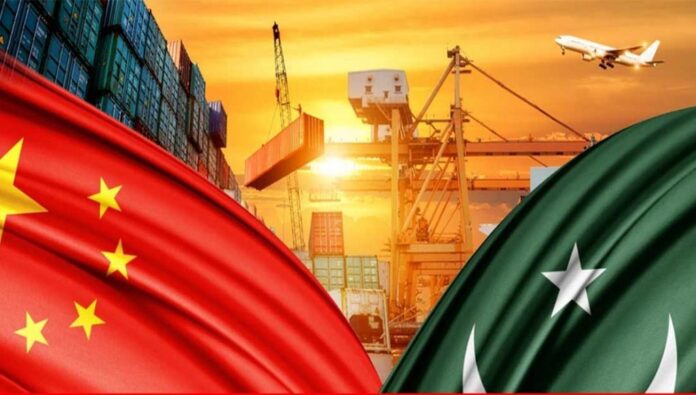- Advertisement -
ISLAMABAD, Apr 25 (APP):The Institute of Regional Studies (IRS) here on Friday hosted a focused group discussion titled “Enhancing B2B collaboration between Pakistan and China under CPEC 2.0.”
The event organized by Ms Nabila Jaffer, Lead China Program, included panel of business leaders, policymakers, and experts to chart pathways for deepening business-to-business ties under the second phase of the China-Pakistan Economic Corridor, said a press release.
IRS President Ambassador Jauhar Saleem opened the event by noting that while the first phase of CPEC delivered key infrastructure, the second phase must focus on industrial development, technology sharing, and proactive measures to address security and political stability risks.
He said this shift is essential to generate employment for Pakistan’s growing youth population. He underscored China’s pursuit of “high-quality development” through AI, digital innovation, and green biotechnology, and stressed that the focus of CPEC 2.0 on a business-to-business framework. is vital for generating millions of jobs for Pakistan’s young workforce.
Dr. Erfa Iqbal, EDG-II Board of Investment and chair of the Joint Cooperation Committee (JCC) Working Group on CPEC explained that as the only bilateral corridor under China’s Belt & Road Initiative, CPEC has already delivered in power sector, modern transport links and Special Economic Zones (SEZS) foundations. She noted that while Phase 1 laid the groundwork, Phase 2 must seize China’s shift from state owned enterprises, labour-intensive to robust private-sector, capital-intensive industries. This requires research institutes to map which sectors China (and even Vietnam) are offshoring, evaluate Pakistan’s comparative advantages, and roll out targeted skill-development programmes, turning physical assets into sustainable industrial clusters and unlocking millions of jobs for Pakistan’s young population.
Talking about the industrialization roadmap, business leader Zafar Bakhtawri called for integrated counter-terror strategies to safeguard CPEC projects. He pointed out that the current tariff war, in spite of challenges, also opens a window for Pakistan to attract industries relocating from China.
Wang Qi, President Zhejiang Chamber of Commerce and Chief Representative Beijing Mineral Technology Company, urged Pakistan’s top 20 business groups or their leaders to maintain substantive ties with China. He urged Islamabad to forge direct province-to-province links and establish direct flights. He also urged Pakistani media to include more content on economic and trade topics.
Moreover, Dr. Hassan Daud Butt, former CEO of KP-BOIT and Associate Professor at Bahria University, urged Pakistan to raise its investment rate from 13.1% of GDP toward peer levels by dismantling regulatory bottlenecks and marketing its competitive strengths in dairy, forage and salt.
He advised starting a flagship special economic zone with clear incentives. He also supported setting up China-focused business desks across local chambers and deploying a focused marketing and media strategy around Pakistan’s export niches to secure sustainable B2B growth under CPEC 2.0.
Zeeshan Ahmad, CEO SkyElectric, proposed that CPEC 2.0 be recast as a hub for venture capital and startups, especially in AI, IoT and blockchain, transforming SEZs into matchmaking platforms for Sino-Pak joint ventures rather than purely government-led schemes. He urged the creation of tech and startup centers, streamlined policies for ease of doing business, stronger leadership connectivity between Pakistani and Chinese entrepreneurs and clearer, more effective arbitration processes.
Ms. Haneea Isaad, energy finance specialist, explored the critical link between energy and industrial growth, noting that Pakistan’s industrial stagnation over the past five to six years is largely due to the high cost and inefficiency of power generation. She explained that while large coal and LNG-based plants addressed previous energy deficits, the country now faces significant overcapacity, with many plants operating below 15 percent utilization.
The session concluded with a shared commitment to empower Pakistan’s private sector, leverage its young workforce, and establish clear B2B frameworks to realize CPEC 2.0’s promise of sustainable, knowledge-driven growth.

